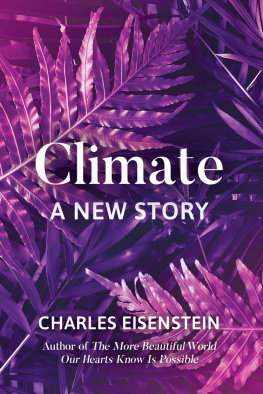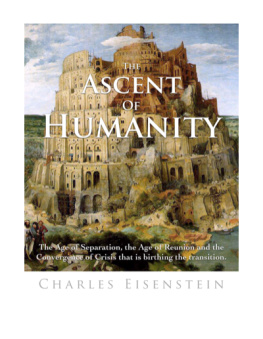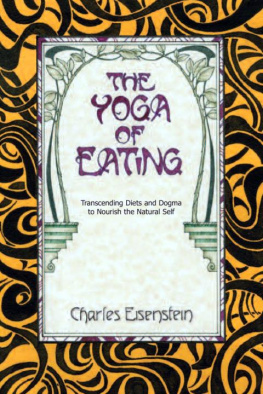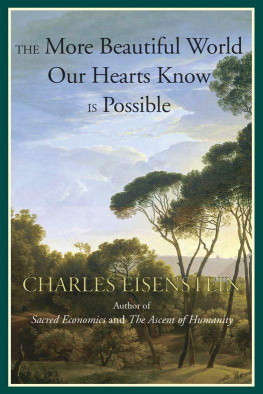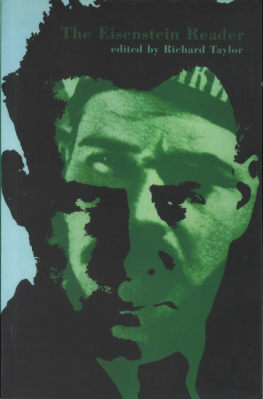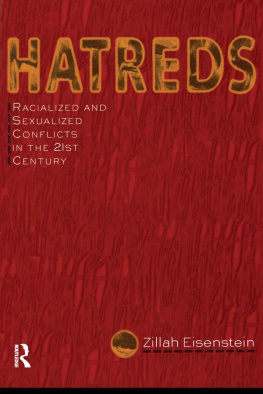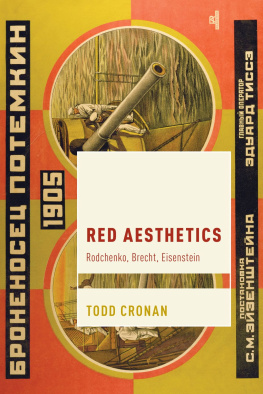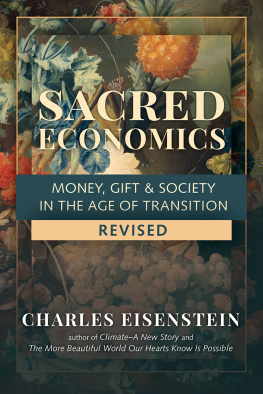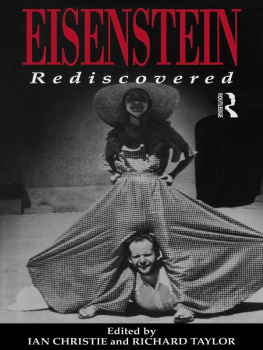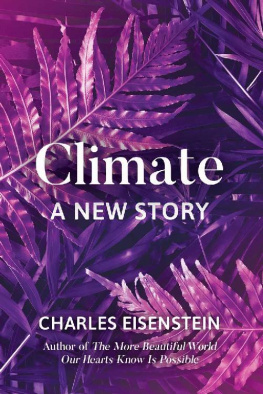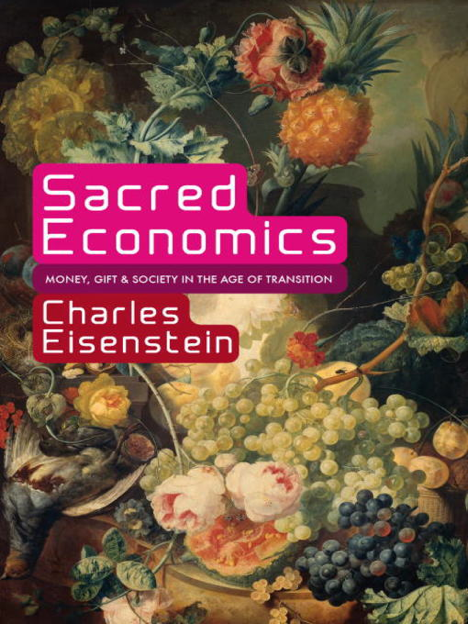
Introduction
The purpose of this book is to make money and human economy as sacred as everything else in the universe.
Today we associate money with the profane, and for good reason. If anything is sacred in this world, it is surely not money. Money seems to be the enemy of our better instincts, as is clear every time the thought "I can't afford to" blocks an impulse toward kindness or generosity. Money seems to be the enemy of beauty, as the disparaging term "a sellout" demonstrates. Money seems to be the enemy of every worthy social and political reform, as corporate power steers legislation toward the aggrandizement of its own profits. Money seems to be destroying the earth, as we pillage the oceans, the forests, the soil, and every species to feed a greed that knows no end.
From at least the time that Jesus threw the money changers from the temple, we have sensed that there is something unholy about money. When politicians seek money instead of the public good, we call them corrupt. Adjectives like "dirty" and "filthy" naturally describe money. Monks are supposed to have little to do with it: "You cannot serve God and Mammon."
At the same time, no one can deny that money has a mysterious, magical quality as well, the power to alter human behavior and coordinate human activity. From ancient times thinkers have marveled at the ability of a mere mark to confer this power upon a disk of metal or slip of paper. Unfortunately, looking at the world around us, it is hard to avoid concluding that the magic of money is an evil magic.
Obviously, if we are to make money into something sacred, nothing less than a wholesale revolution in money will suffice, a transformation of its essential nature. It is not merely our attitudes about money that must change, as some self-help gurus would have us believe; rather, we will create new kinds of money that embody and reinforce changed attitudes. Sacred Economics describes this new money and the new economy that will coalesce around it. It also explores the metamorphosis in human identity that is both a cause and a result of the transformation of money. The changed attitudes of which I speak go all the way to the core of what it is to be human: they include our understanding of the purpose of life, humanity's role on the planet, the relationship of the individual to the human and natural community; even what it is to be an individual, a self. After all, we experience money (and property) as an extension of our selves; hence the possessive pronoun "mine" to describe it, the same pronoun we use to identify our arms and heads. My money, my car, my hand, my liver. Consider as well the sense of violation we feel when we are robbed or "ripped off," as if part of our very selves had been taken.
A transformation from profanity to sacredness in money-something so deep a part of our identity, something so central to the workings of the world-would have profound effects indeed. But what does it mean for money, or anything else for that matter, to be sacred? It is in a crucial sense the opposite of what sacred has come to mean. For several thousand years, the concepts of sacred, holy, and divine have referred increasingly to something separate from nature, the world, and the flesh. Three or four thousand years ago the gods began a migration from the lakes, forests, rivers, and mountains into the sky, becoming the imperial overlords of nature rather than its essence. As divinity separated from nature, so also it became unholy to involve oneself too deeply in the affairs of the world. The human being changed from a living embodied soul into its profane envelope, a mere receptacle of spirit, culminating in the Cartesian mote of consciousness observing the world but not participating in it, and the Newtonian watchmaker-God doing the same. To be divine was to be supernatural, nonmaterial. If God participated in the world at all, it was through miracles-divine intercessions violating or superseding nature's laws.
Paradoxically, this separate, abstract thing called spirit is supposed to be what animates the world. Ask the religious person what changes when a person dies, and she will say the soul has left the body. Ask her who makes the rain fall and the wind blow, and she will say it is God. To be sure, Galileo and Newton appeared to have removed God from these everyday workings of the world, explaining it instead as the clockwork of a vast machine of impersonal force and mass, but even they still needed the Clockmaker to wind it up in the beginning, to imbue the universe with the potential energy that has run it ever since. This conception is still with us today as the Big Bang, a primordial event that is the source of the "negative entropy" that allows movement and life. In any case, our culture's notion of spirit is that of something separate and nonworldly, that yet can miraculously intervene in material affairs, and that even animates and directs them in some mysterious way.
It is hugely ironic and hugely significant that the one thing on the planet most closely resembling the forgoing conception of the divine is money. It is an invisible, immortal force that surrounds and steers all things, omnipotent and limitless, an "invisible hand" that, it is said, makes the world go 'round. Yet, money today is an abstraction, at most symbols on a piece of paper but usually mere bits in a computer. It exists in a realm far removed from materiality. In that realm, it is exempt from nature's most important laws, for it does not decay and return to the soil as all other things do, but is rather preserved, changeless, in its vaults and computer files, even growing with time thanks to interest. It bears the properties of eternal preservation and everlasting increase, both of which are profoundly unnatural. The natural substance that comes closest to these properties is gold, which does not rust, tarnish, or decay. Early on, gold was therefore used both as money and as a metaphor for the divine soul, that which is incorruptible and changeless.
Money's divine property of abstraction, of disconnection from the real world of things, reached its extreme in the early years of the twenty-first century as the financial economy lost its mooring in the real economy and took on a life of its own. The vast fortunes of Wall Street were unconnected to any material production, seeming to exist in a separate realm.
Looking down from Olympian heights, the financiers called themselves "masters of the universe," channeling the power of the god they served to bring fortune or ruin upon the masses, to literally move mountains, raze forests, change the course of rivers, cause the rise and fall of nations. But money soon proved to be a capricious god. As I write these words, it seems that the increasingly frantic rituals that the financial priesthood uses to placate the god Money are in vain. Like the clergy of a dying religion, they exhort their followers to greater sacrifices while blaming their misfortunes either on sin (greedy bankers, irresponsible consumers) or on the mysterious whims of God (the financial markets). But some are already blaming the priests themselves.
What we call recession, an earlier culture might have called "God abandoning the world." Money is disappearing, and with it another property of spirit: the animating force of the human realm. At this writing, all over the world machines stand idle. Factories have ground to a halt; construction equipment sits derelict in the yard; parks and libraries are closing; and millions go homeless and hungry while housing units stand vacant and food rots in the warehouses. Yet all the human and material inputs to build the houses, distribute the food, and run the factories still exist. It is rather something immaterial, that animating spirit, which has fled. What has fled is money. That is the only thing missing, so insubstantial (in the form of electrons in computers) that it can hardly be said to exist at all, yet so powerful that without it, human productivity grinds to a halt. On the individual level as well, we can see the demotivating effects of lack of money. Consider the stereotype of the unemployed man, nearly broke, slouched in front of the TV in his undershirt, drinking a beer, hardly able to rise from his chair. Money, it seems, animates people as well as machines. Without it we are dispirited .
Next page

